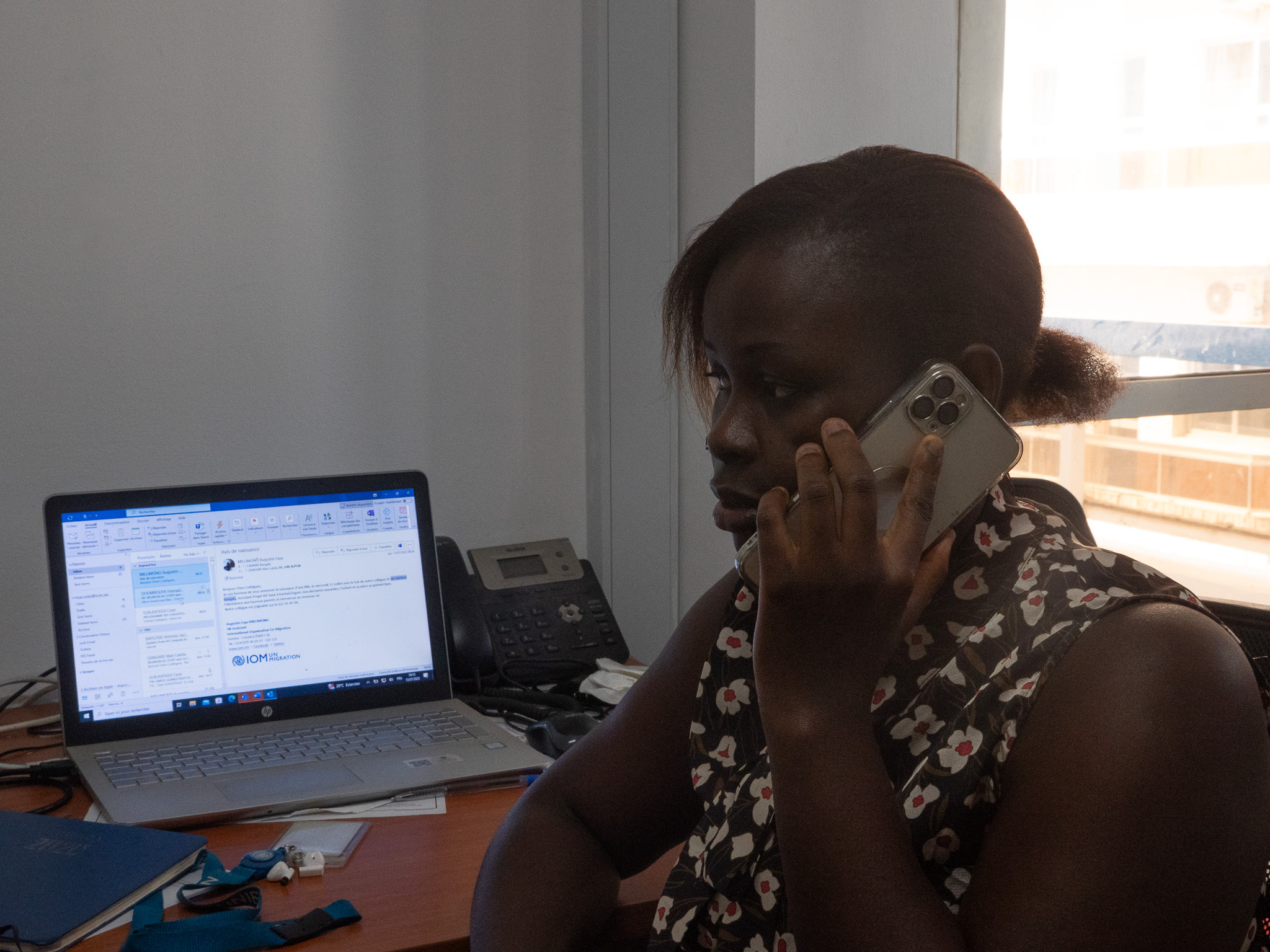Conakry, 24 July 2023 – Unlike many, 24-year-old Mariam Conté barely recalls her 18th birthday, at least not the exact day. The events that unfolded that year, however, remain lucid. Turning 18 would mean she was officially an adult – able to make all her own decisions, but she wasn’t.
At 17, she was full of hopes and dreams of becoming a journalist and telling the stories of her community to the world. She wanted to get the most from her studies and after consultation with her cousins, she opted to travel to Europe to pursue her education. Financial constraints would pose a challenge to her plans.
“My cousins sold their family car for roughly USD 6,000 and with this money, we connected with a Burkinabè smuggler in Conakry, paying him 1 million CFA,” she recalls.
Alongside her cousins and other girls, Mariam traveled to Mali then Burkina Faso by bus where they were sheltered for two days, during which they contacted their families and relatives to pay for their onward journey to Libya through the Niger border. “We journeyed to Arlit, and it was there that I was separated from my cousins. I found myself in Benghazi.”
It was in Benghazi, Libya where her harrowing ordeal began. The smugglers held her hostage and sexually abused and exploited her for money for nearly four months. To attain her freedom, the traffickers demanded she pay. “They made a video call to my parents, during which they tortured me, inflicting injuries that would leave scars on my back.”
The sight of her daughter undergoing the torment forced her mother to send the money to secure her release.

Mariam takes calls from migrants at the call centre. Photo: IOM Guinea
"Every day was a struggle for survival," she narrates.
According to IOM’s Counter Trafficking Data Center (CTDC), one in three female victims trafficked for sexual exploitation are children. Despite advancements made, this practice persists, emphasizing the need for continued and collective action among states and non-state actors.
With money borrowed from her relatives, Mariam would pay for transportation back home, only to be dumped in Tamanrasset, southern Algeria where authorities took them to the IOM office in Agadez, Niger in what would be the start of her journey home. Her unexpected homecoming marked the beginning of another ordeal for her: stigmatization from some members of her family, who perceived her as a "failure”, and rejection from society.
The encounter with IOM would spark something in her, however. The experiences had taken a lot from her, but it did not overshadow her quest to pursue her education. She expressed a desire to resume her law studies at the university, which IOM supported as part of her reintegration.
Mariam, now a law graduate, works as a call centre manager with IOM in Guinea where she supports victims and survivors of human trafficking. She has dedicated herself to helping other victims of human trafficking and raising awareness about this scourge.

Mariam welcomes migrants returning from Libya at Conakry airport. Photo: IOM Guinea
“I want my story to prevent others from experiencing the same nightmare and to shift the burden of shame from the victims and survivors to the orchestrators of these heinous acts.”
Guinea serves as both a source, destination, and transit point for migrants, with intra-regional migration being the most common. Within the country, various factors such as recurrent political instability, economic, social, or health crises, and a lack of employment or training opportunities, have largely contributed to migration.
IOM and partners are supporting the government and the National Committee Against Human Trafficking and Similar Practices towards preventing and responding to trafficking in persons, demonstrating significant commitment to eradicating this crime.
One such cooperation is through the project “Using the Human Security Approach to Empower and Protect Individuals from Human Trafficking” that focuses on protection and prevention.
This shared commitment underscores the importance of global collaboration in the fight against human trafficking.
Despite obstacles, stories like Mariam's serve to demand more from us and remind us of the importance of the fight against trafficking in persons, strengthening our hope and determination to fight.
At this unique time where the international community faces a confluence of crises and profound global transformations, the 2023 Sustainable Development Goal (SDG) Summit in New York (Sept 18-19) ought to be a moment of truth and reckoning: it is imperative that human mobility is incorporated into the Rescue Plan the UN Secretary General is urging world leaders to deliver at the Summit.
In Guinea, IOM is reinforcing efforts to advance SDG 16 (Peace, Justice and Strong Institutions) by supporting education for migrant children, accelerating the journey to the 2030 Agenda by reducing reduce vulnerability to trafficking and forced labour and supporting survivors.



